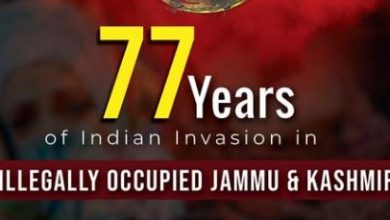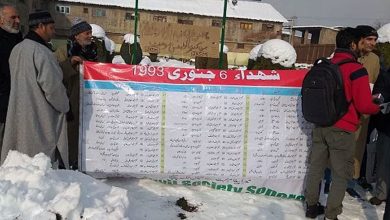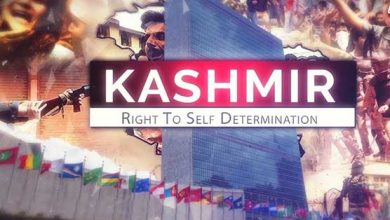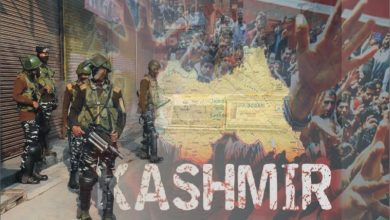Article: Human Rights in India occupied Jammu & Kashmir: A Call for Recognition and Action.
By Altaf Hussain Wani
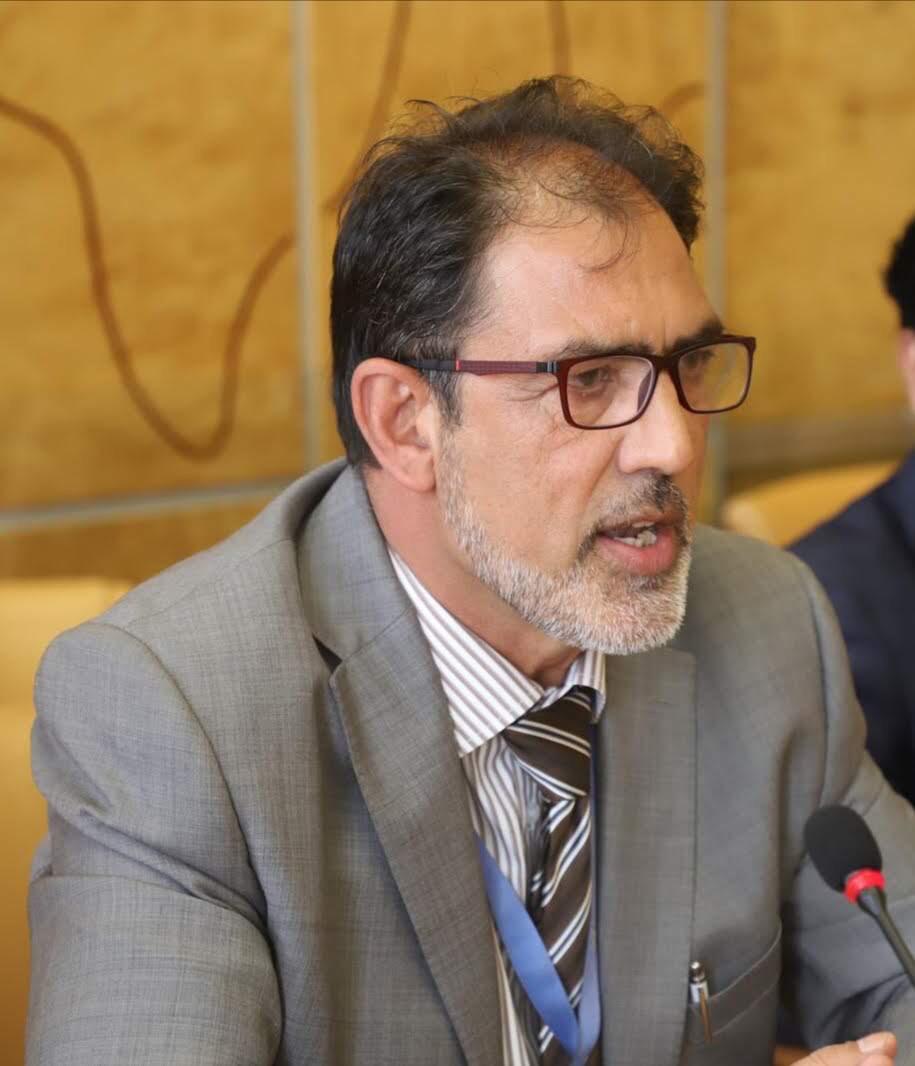 As International Human Rights Day approaches, the theme “Our Rights, Our Future, Right Now” resonates profoundly with the ongoing struggles faced by the people of Indian occupied Jammu and Kashmir. This year’s observance continues the forward-looking vision articulated by UN Human Rights Chief Volker Türk in his statement, “Human Rights: A Path for Solutions,” which emphasizes the urgent need to address human rights violations globally, particularly in regions like Kashmir that have endured decades of conflict and repression.
As International Human Rights Day approaches, the theme “Our Rights, Our Future, Right Now” resonates profoundly with the ongoing struggles faced by the people of Indian occupied Jammu and Kashmir. This year’s observance continues the forward-looking vision articulated by UN Human Rights Chief Volker Türk in his statement, “Human Rights: A Path for Solutions,” which emphasizes the urgent need to address human rights violations globally, particularly in regions like Kashmir that have endured decades of conflict and repression.
Since 1989, Indian-occupied Kashmir has been a hotspot of human rights violations, with over 90,,000 +people killed, 10,000 subjected to enforced disappearances, and more than 7,000 extrajudicial killings, according to the Jammu and Kashmir Coalition of Civil Society (JKCCS). Unmarked and mass graves, spread across the region, serve as grim evidence of decades of unaccountable violence. Sexual abuse and torture have been systematically employed as weapons of war by successive Indian regimes, contributing to the suffering of Kashmiris. Despite international frameworks such as the Universal Declaration of Human Rights (UDHR) of 1948, which guarantees the right to self-determination, these rights remain denied to the Kashmiri people. Over the past 35 years, they have endured systemic repression, restrictions on freedom of expression and association, and a pervasive denial of basic freedoms, worsening the human rights crisis in the region.
Indian forces have frequently resorted to the use of shotgun pellets as a crowd-control weapon in Kashmir, causing devastating injuries, particularly among young men and teenagers. From 2010 to 2011, 100 pellet injury cases were treated at Soura Medical Institute. Between 2016 and 2019(before 5 Aug), 11,400 were injured, 2,000 faced severe eye damage, and In the last seven months of 2016 alone, 1,100were injured, 782 suffered eye damage, and 80 killed. After 2019, 584 were injured, with 24 losing eyesight.
International human rights organizations, including Amnesty International and Human Rights Watch, have documented severe human rights abuses in Kashmir. Amnesty International’s 2021 report, “The Unseen: A Report on Human Rights Violations in Jammu and Kashmir,”highlights the extensive use of pellet guns, leading to severe injuries and blindness among civilians. The Armed Forces (Special Powers) Act (AFSPA) of 1990 grants security forces sweeping powers to arrest and kill without accountability, overriding the right to life. Human Rights Watch’s 2020 report, “They Don’t Allow Us to Speak,” details the systematic targeting of dissent, using the Public Safety Act (PSA) to detain individuals without trial for up to two years, silencing activists, journalists, and citizens. Amnesty International called the PSA a “lawless law,” used to keep political leaders imprisoned. Following the abrogation of Article 370 and 35A in August 2019, repression increased, with severe internet shutdowns and complete communication blackouts, among the highest in the world. The National Investigation Agency (NIA) and UAPA have been used to frame political leaders, human rights defenders, and journalists under terrorism charges for voicing dissent.
Since the revocation of IoK’s special status on 5 August 2019, the BJP government has initiated measures to alter the region’s demographics, favoring Hindus in the Jammu region. Over 500,000 domiciles have been granted to non-Kashmiris, and non-natives are now allowed to purchase properties. Delimitation exercises and four bills introduced in the Lok Sabha aim to increase job, education, and assembly representation quotas for Jammu, suppressing Muslim voices in IIOJK’s legislative and administrative processes. Authorities have identified 178,005 acres of allegedly encroached state land in Kashmir and 25,159 acres in Jammu, undermining historical land rights under local laws. In July 2020, amendments to the Jammu and Kashmir Development Act allowed land acquisition for “strategic areas,” enabling military control over 56,615 acres, including ecologically sensitive land. By 2023, 193 properties were attached, highlighting the accelerated suppression and marginalization of local communities.
The situation has drawn the attention of the United Nations, with two significant reports from the UN High Commissioner for Human Rights addressing the human rights situation in Kashmir. The first report, released in June 2018, called for an international inquiry into human rights violations in the region, highlighting the need for accountability and justice for victims. The second report, published in July 2019, reiterated concerns about the deteriorating human rights situation and the report documented increased military presence, restrictions on communication, and the crackdown on civil society, further exacerbating the plight of the Kashmiri people.
In addition to these reports, the Office of the UN High Commissioner for Human Rights (OHCHR) has consistently urged the Indian government to uphold its human rights obligations and respect the rights of the Kashmiri people.
The OHCHR has called for the repeal of draconian laws, the end of impunity for security forces, and the establishment of mechanisms to ensure accountability for human rights violations.
Despite international calls for action, the situation in Kashmir remains dire. The Indian government’s strategy of militarization and repression, justified as national security measures, deepens grievances and perpetuates violence. The resilience of the Kashmiri people is commendable, with grassroots movements advocating for human rights and self-determination. Organizations and activists continue to document abuses and raise awareness, while Kashmiri women’s voices gain prominence, highlighting the gendered aspects of violence. As we mark International Human Rights Day, the global community must acknowledge the suffering of the Kashmiri people and take concrete action. This includes holding perpetrators accountable, supporting the right to self-determination, and ensuring that Kashmiri voices are respected.
The theme “Our Rights, Our Future, Right Now” underscores that the struggle for human rights is ongoing. The people of Kashmir deserve recognition and justice, and it is crucial for individuals, organizations, and governments to stand in solidarity for a future where their rights are upheld. The time for action is now.
Writer is Chairman Kashmir Institute of International Relations and can be reached @ saleeemwani@hotmail.comand via X @sultan1913





